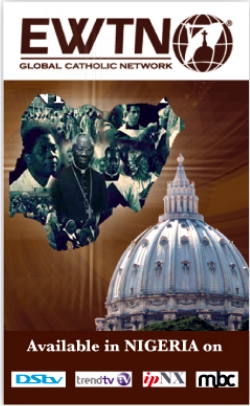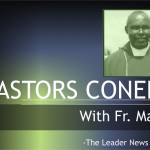ACHEBE AND THE INVENTION OF AFRICAN LITERATURE (1)
Prof. Chinua Achebe
came strong on the world stage with the publication of his first novel, Things Fall Apart. It is a work widely considered to have defined African literature and brought balance to world literature. This is despite the fact that there were other pioneering efforts regarding African prose by African indigenous writers. By 1933 Omenụkọ by Pita Nwana had been published, followed by the Onitsha Market Literature through which Cyprian Ekwensi published pamphlet stories like Ikolo the Wrestler and Other Ibo Tales (1947) and When Love Whispers (1948). These were before Amos Tutuola’s The Palm-Wine Drinkard (1952), which many regard as the pioneer novel form in English language by an indigenous African. However, it is Chinua Achebe’s Things Fall Apart (1958) that critics agree that has defined not just the African novel, but African Literature. Its publication opened the gates for many more titles by Igbo and African writers. According to Simon Gikandi
“If Achebe is now considered to be the man who invented the African literature, it is not so much because he was a pioneer or an innovator. In the very simple and conventional story of Okonkwo, a strong individual and an Igbo hero struggling to maintain the cultural integrity of his people against the overwhelming power of the colonial rule. Achebe was able to capture the anxieties of many African readers in the 1950s.”
Michael Thelwell describes Achebe and James Baldwin as two men from the twin poles of Africa and America who “simultaneously emerged to define for our generation new terms of our existence in literature and the world’s imagination….”
This is because Achebe does not write any kind of novels. His novels are the type that ‘render our world more real’ as John Sunderland would say. Achebe’s novels, as Thelwell argues, are instruments of “serious moral and cultural discourse”. Such novels are very much part of our history. As such, the stories they bear ought to be told to every Igbo generation just as the oral stories that embodied Igbo ideologies were repeated to every generation, mindful of the fact that without stories of the past, no generation can truly evolve or as Robert McKee puts it, “A culture cannot evolve without honest, powerful storytelling”.
Achebe’s stories are honest and powerful. Born in 1930 to a Catechist converted by Anglican missionaries, Albert Chinualumogu (shortened Chinua) Achebe attended St Philip’s Central School in his home town Ogidi, then Government College Umuahia and University College, Ibadan. From 1954 he worked as a producer and a director for the Nigerian Broadcasting Corporation after a few months of secondary school teaching. By 1958, he was made Controller of the Eastern Region of the Broadcasting Corporation. Later he became its Director of External Broadcasting before the outbreak of genocide against the Easterners (Biafrans), which developed into civil war (1967-1970). He took up some diplomatic assignments for Biafra during the crisis and also taught in the University of Nigeria, Nsukka. Achebe’s writings are not born out of fantasy but true-life experiences. He believes, or in his own words, ‘insists’ “that art is and was always, in the service of man.” According to him, our ancestors created their myths and legends and told their stories for a human purpose (including, no doubt, the excitation of wonder and pure delight); they made their sculptures in wood and terracotta, stone and bronze to serve the needs of their times. Their artists lived and moved and had their being in society and created their works for the good of that society.
It is with this view that Achebe has influenced every generation of African writers from his time to use arts to build society. Maya Jaggi, a journalist for The Guardian, “quoted Ngugi wa Thiong’o as saying that Chinua Achebe, ‘made a whole generation of African people believe in themselves and in the possibility of their being writers’”. That is not hard to see because it was Achebe who recommended Ngugi’s first novel for publication, working as the editorial adviser for Heinemann’s African Writers Series – a position he was appointed to in 1962.
For Chinua Achebe, who is known to disagree with Ngugi on the language of African literature, the important thing is to tell one’s story and not to allow language to be a constraint. The abolition of English (for British colonised territories, for instance), Achebe argues, has problems with no convincing solutions. Achebe’s position in a way contradicts his mission, which he describes as helping the people regain their self-confidence of which the promotion of indigenous languages is a primary task. However, because this task also involves speaking to the outside world, especially to the colonizers, to refute their misrepresentations, one has a good reason to excuse the use of the colonizer’s tongue. This enables the literary artist to communicate directly to them and avoid the distortions of translations.
It is my understanding that Achebe began to write in response to colonial literature. The implication is that a foreign, colonial, audience would have been on his mind while restoring subjectivity and objective history to his people. However, it does not mean that the West was the only audience in his mind but rather, that responding to inaccuracies in colonial literature on Africa was a major influence. According to Gikandi
Achebe felt impelled to define and redefine the project of African literature precisely because whenever he looked around him, he was confronted by the overwhelming hegemony of colonialist rhetoric on Africa – what he once called ‘sedate prose of the district-officer-government-anthropologist of sixty or seventy years ago – which the African intellectual has had to wrestle, like Jacob and the angel, at almost every juncture of our contemporary history. (Gikandi, 1991: 6)
To be ‘impelled’ means that something is forcing you to act – an external force. It was colonial misrepresentations of Africa that impelled Achebe to write and respond to European colonial writers and administrators. In some of his critical essays, Achebe makes references to Joseph Conrad’s Heart of Darkness and Joyce Cary’s (colonial administrators) Mr Johnson as examples of those misrepresentations of Africa. Achebe disagrees with Conrad’s description of Africa as “prehistoric earth” and “unknown planet”; he disagrees with Cary’s creation of a Nigerian character known as Mr Johnson thereby debunking the colonial administrators’ ‘I know my natives’ claim. To undertake this task of responding to colonial imaging of Africa more effectively, Achebe had to employ the narrative technique, which is considered a more suitable genre for refuting the colonizer’s fixed image of the colonized, for rewriting history. As Edward Said puts it, “narrative by which history is represented” …asserts the power of men to be born, develop, and die, the tendency of institutions and actualities to change, the likelihood that modernity and contemporaneity will finally overtake “classical” civilization; above all, it asserts that the domination of reality by vision is no more than a will to power, a will to truth and interpretation and not an objective condition of history. Narrative in short, introduces an opposing point of view, perspective, consciousness to the unitary web of vision; it violates the serene Apollonian fictions asserted by vision.
- Chikwendu Anyanwu @ THE LEADER NEWS ONLINE
Read also Related Posts
Comments
comments

 SEVENTH SUNDAY OF EASTER YEAR C 12/5/2013
SEVENTH SUNDAY OF EASTER YEAR C 12/5/2013
 PASTOR’S CONER – COME, LORD JESUS!
PASTOR’S CONER – COME, LORD JESUS!
 Stop this Money sharing to Imo Pupils now
Stop this Money sharing to Imo Pupils now
